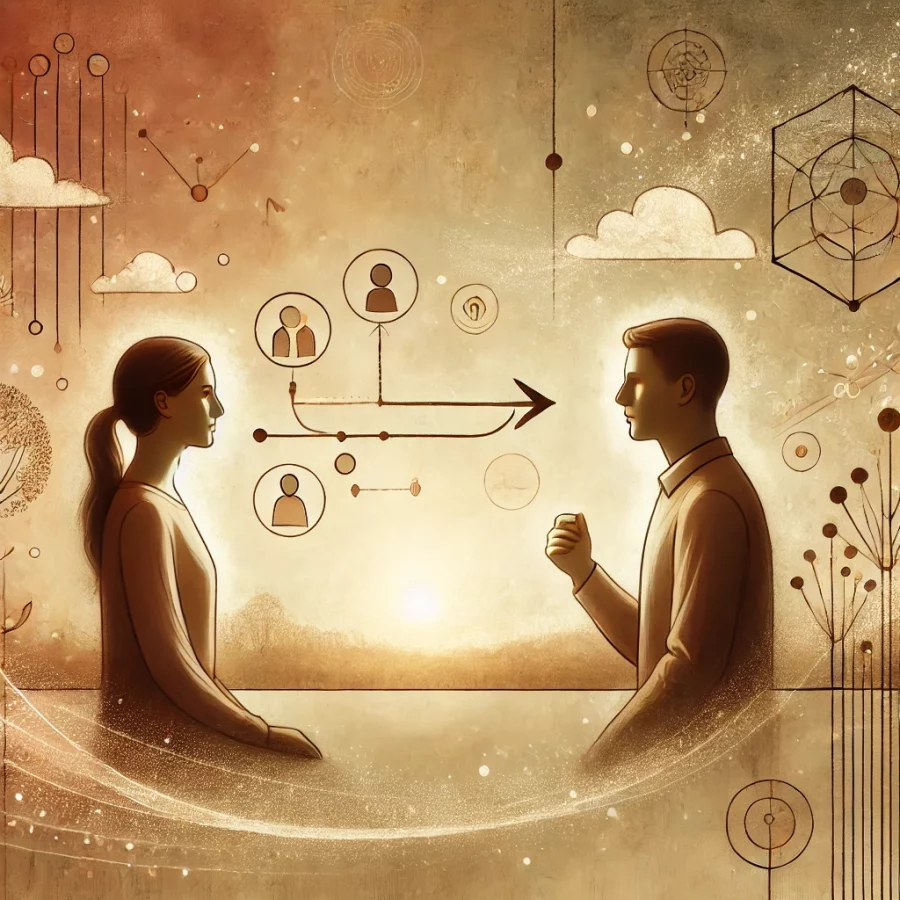By: Grace Westling
In our lecture, we discussed the construction of self and world in everyday communication. Where we learned to ask questions of who am I? What am I? Who is consuming it? But, the last question has become the most important and prevalent now with social media.
A theory that stuck out most to me is interactionism. Where an individual’s meaning depends on the social relations they are in. For example, a professor in a lecture hall is just a professor. But seeing your professor on the tube, they are just any other person on the tube. The meaning of individuals is through the interactions we have with them.
However social media allows people to have multiple personas on different platforms. Impression management, it allows people to have a “front stage” which is for everyone. While the “backstage” is really only for your true self. We interact between the front and the backstage with the idea of the best possible impression. Social media gives the ability for people to have multiple “backstages”.
An example of this is how politicians use social media platforms to portray different forms of their backstages. In hopes, they will reach more people and have an influence over them. Vice-President Kamala Harris is a beaming example of this. On TikTok, Harris (and her campaign team) make funny videos to reach Gen Z. While her Instagram shows her presidential campaign. Putting up videos of recent interviews, campaigning for Americans to vote, as well as her policies. But, opposing platforms such as Donald Trump’s tweets represent a different backstage of Harris. Spreading disinformation, one time alluding to the fact of Harris not even being a US citizen. Even though she was born in Oakland, CA.
Whether it is creating backstages for ourselves or others, once it is on social media it will never leave us. Sherry Turkle makes the point that when we are with our phones, we are never truly alone. She is accurate with that point since on our phones there are multiple versions of others and ourselves. She makes the point of how you can change your identity or create multiple on social media, yet they will never leave you.
With impression management and social media, all audiences are under one stage. Media today is no longer a medium to us, it has become a space. Where we interact with one another while not being ourselves some of the time. Face-to-face interaction has become less important with the development of social media. Some people even meet their partners on a dating app, Tinder or Hinge for example.
But, while we can use social media to interact with each other. Being ourselves is still important since that is all we have at the end of the day.



Really engaging post! I think its really interesting the way you linked impression management to the US election and how modern day presidential candidates are using the power of social media as a way to promote their campaigns while also using the different platforms as a way of reaching different target audiences. I think this is also very true even for just the normal person as I myself also post different content depending on the platform I am using. Overall really interesting post and I enjoyed reading it!
I enjoyed reading your explanation, especially since you compared it to a relevant example, such as Kamala Harris. The way you incorporate the reading into the article is well done. I also agree that social media never leaves you, as many influencers have faced their past being brought back to haunt them, resulting in influencers getting ‘cancelled’ due to their digital footprint. I also enjoyed the TikTok example you gave compared to the Instagram example. Thank you for the enjoyable read!
This is a fascinating perspective on how social media reshapes identity! I appreciate your exploration of frontstage and backstage personas, particularly the example of Kamala Harris tailoring her message across different platforms. The idea that media has evolved into a space, rather than just a medium, is very insightful.
It’s also intriguing how you highlight the permanence of digital personasŌĆöonce something is online, it never truly disappears. This raises important questions about authenticity and how we manage our identities. Great post!
This is a fascinating take on how social media reshapes identity! I love your exploration of frontstage and backstage personas, especially the example of Kamala Harris tailoring her message across platforms. The idea that media has become a space, not just a medium, is spot on.
ItŌĆÖs also interesting how you highlight the permanence of digital personasŌĆöonce online, they never truly leave us. This raises important questions about authenticity and how we manage our identities. Great post!